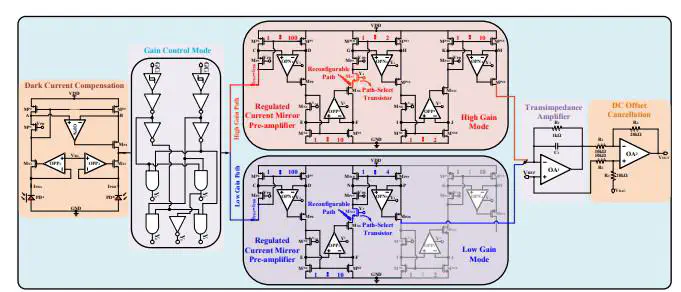An Adaptive Dark Current Compensation Analog Front-End With Reconfigurable Transimpedance Amplifier for Fluorescence Temperature Sensors

Abstract
In this brief, a low-power CMOS analog front-end (AFE) circuit is proposed for fluorescence optical fiber temperature sensors. The CMOS AFE utilizes a novel adaptive dark current compensation technique to eliminate static operating point offsets in the front-end circuit, which occur due to the quick increases of photodiode dark current at high temperatures. The reconfigurable transimpedance amplifier (TIA) supports both high and low gain modes. Fabricated using a 180nm CMOS process, the AFE chip exhibits a -3dB bandwidth of 10kHz, a transimpedance gain of 158.51dBΩ, and an inputreferred noise current of 14.89fA/Hz in its high gain mode. Under a 3.3V power supply, the circuit consumes 62.4μW in this mode. The temperature sensor prototype utilizing this AFE chip achieves high-precision measurements, with an average error of -0.1 ∘C and a standard deviation of 0.33 ∘C across a range from -30 ∘C to 100 ∘C.